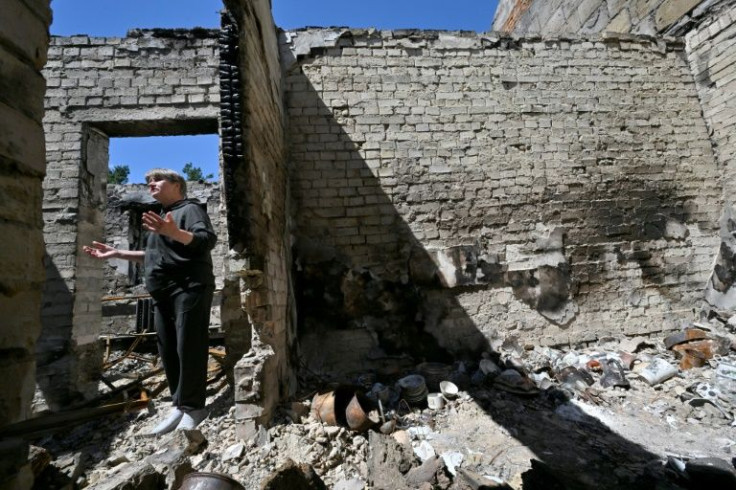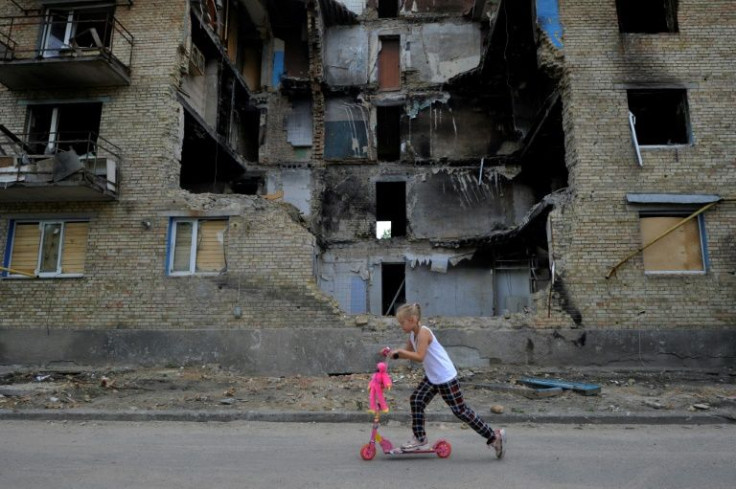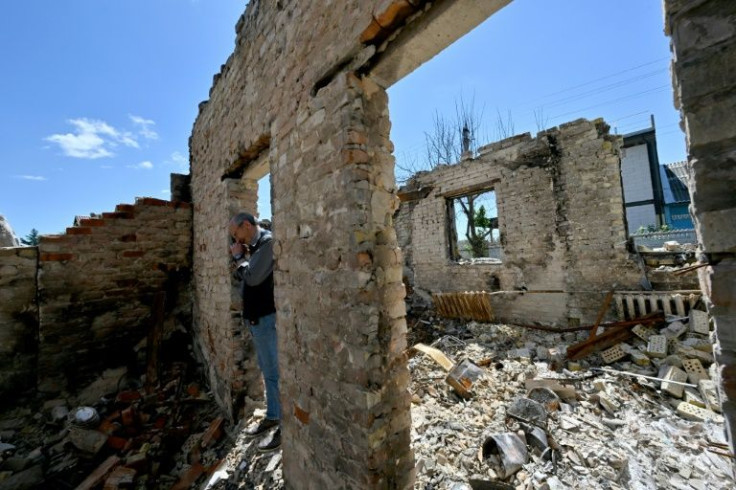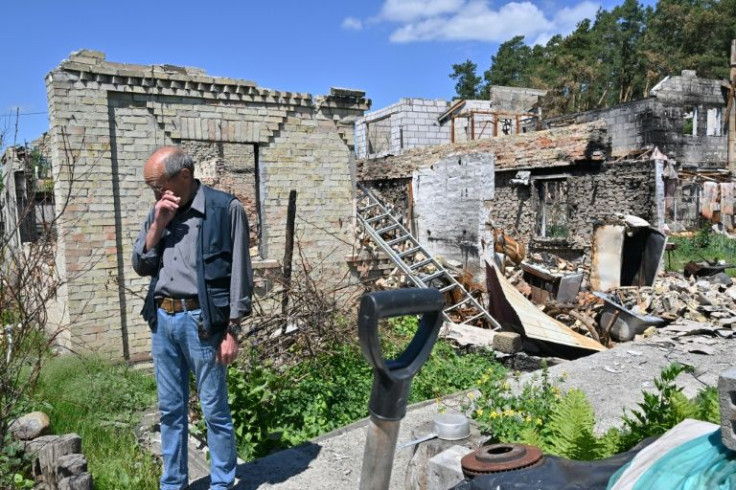In Ukraine's 'Martyr Towns', Hopes For Speedy Reconstruction
Zoya Potapova planted flowers behind the ruins of her home -- bombed by Moscow in March -- in the hope of a quick restoration even before any building work had begun.
Like Potapova, many residents of satellite towns north of the Ukrainian capital Kyiv are overcoming difficult memories of Russia's occupation and placing their hope in the government's promise of reconstruction.
In the settlement of Gorenka, which was pummelled at the beginning of Moscow's invasion, the time is now for Potapova, who lost her husband in the conflict.

"I hope we won't be forgotten. We did a lot to stop the advance towards the capital," she says tearfully, throwing up her arms next to the charred remains of her home.
A local official, Tetiana Shepeleva, told AFP that 1,000 homes had been reported as either entirely or partially destroyed.

Potapova's garden is thriving and beneath fruit trees shredded by shrapnel, potatoes and strawberries are flourishing.
Thanks to a streak of good weather, some residents are taking reconstruction efforts into their own hands.
But there is a conspicuous lack of help and building material in the town, whose pre-war population was around 10,000 people.

The need for both is great across Ukraine. In late May, Prime Minister Denys Shmygal estimated the cost of the destruction wrought by Russia's invasion at 561 billion euros ($603 billion).
For now, the priority in liberated towns north of Kyiv appears to be demining and AFP journalists there heard military engineers clearing unexploded ordnance.
Electricity is gradually being restored and so too a bridge near Gorenka.

In the town of Bucha, which has become synonymous with the alleged war crimes carried out by Russian troops, some 600 families are looking for a roof over their heads or renting vacation properties.
The town was known as a calm getaway surrounded by quiet pine forests before the invasion.
Some of those returning are being put up in grey shipping containers installed next to a large market that was reduced to a mess of sheet metal.
Polish Prime Minister Mateusz Morawiecki during a recent visit to Borodianka near Gorenka opened the first settlement for people left homeless by the conflict.
The settlement uses temporary modular housing units and more are planned in Ivankiv, Gostomel and Bucha.
"They're made available for free by the government with enough space for 92 families," said Bucha's mayor, 50-year-old Anatoly Fedoruk, describing the compartments of 20 square metres (215 square feet) each that can accommodate four people.
These makeshift homes provide clean living spaces, disinfected toilets and canteens with painted walls, accompanied by signs urging residents to stay strong, happy and hopeful.
Oksana Polishchuk's own home was partially destroyed and her food stand went up in flames.
But the 41-year-old trader, who still suffers frequent panic attacks and is receiving psychological help, said she was not waiting for her house to be rebuilt.
"I want to be compensated and rebuild my life elsewhere," she said.
"Ukrainians are not afraid of the rebuilding effort that awaits them.
"We will get back everything we had before. The only important thing is winning this war."
© Copyright AFP 2024. All rights reserved.





















